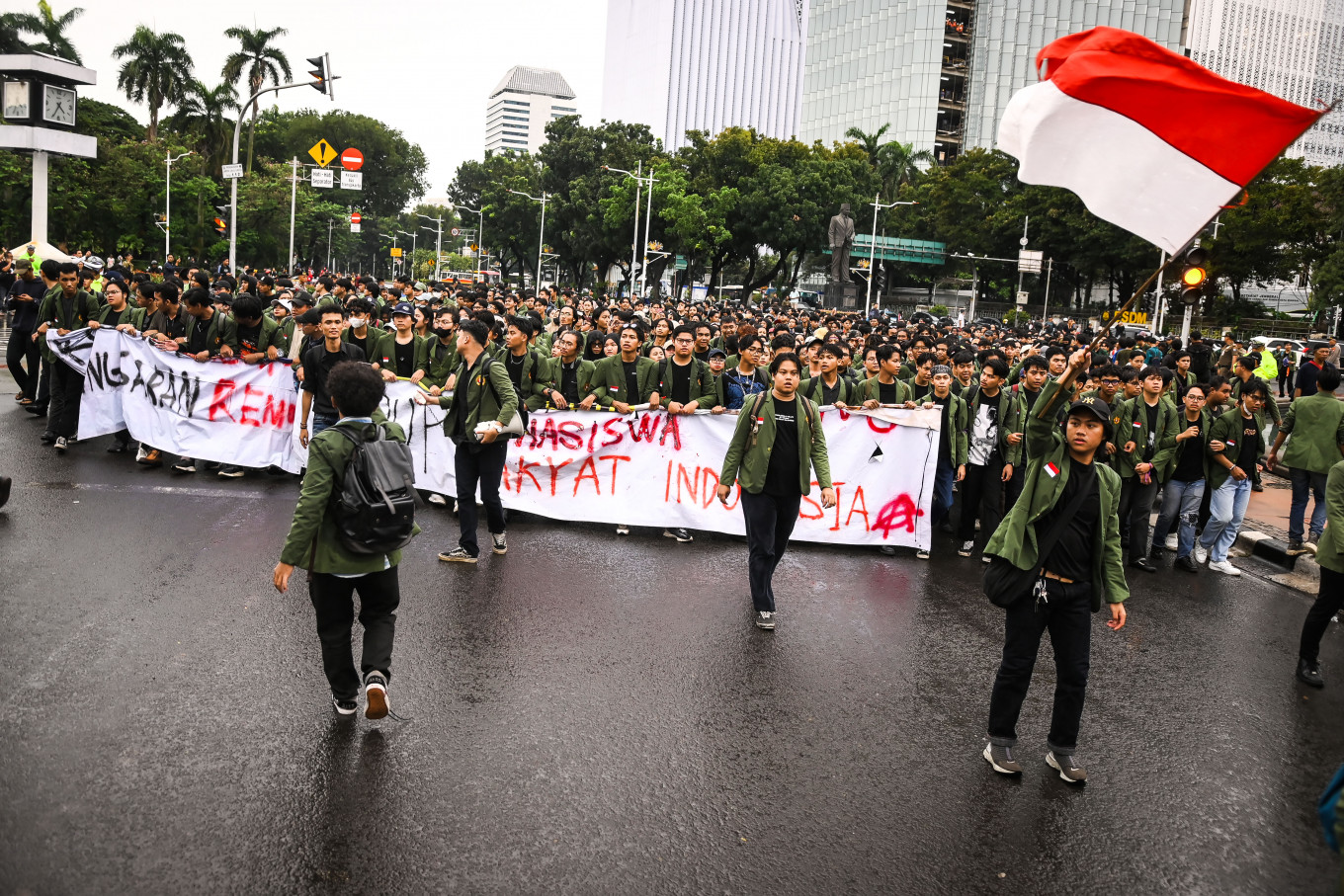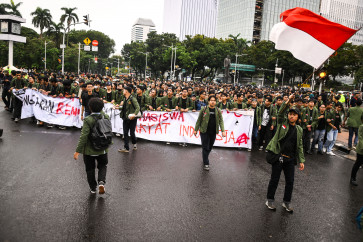Popular Reads
Top Results
Can't find what you're looking for?
View all search resultsPopular Reads
Top Results
Can't find what you're looking for?
View all search resultsIndonesia Gelap: A public fear over a seized country
Democracy, which should serve as a tool to channel the aspirations of the people, is instead being hijacked by an oligarchy seeking to preserve its power.
Change text size
Gift Premium Articles
to Anyone
 Students belonging to the Association of University Student Executive Bodies (BEM SI) rally on Feb. 17 in Jakarta. In the protest, titled Indonesia Gelap (Dark Indonesia), the students called for the revocation of budget cuts in the education sector, which they said would heavily impact tuition fees and scholarship funds. (Antara Foto/Sulthony Hasanuddin)
Students belonging to the Association of University Student Executive Bodies (BEM SI) rally on Feb. 17 in Jakarta. In the protest, titled Indonesia Gelap (Dark Indonesia), the students called for the revocation of budget cuts in the education sector, which they said would heavily impact tuition fees and scholarship funds. (Antara Foto/Sulthony Hasanuddin)
S
tarting in Jakarta, from Feb. 17 to Feb. 21, a wave of demonstrations erupted under the banner of Indonesia Gelap (Dark Indonesia), led by university students and various civil society organizations. The movement quickly spread to multiple regions, with thousands of protesters taking to the streets, storming local legislative offices and gathering at Jakarta’s Arjuna Wiwaha Statue area, just a stone’s throw from the Presidential Palace.
At the heart of this unrest lies President Prabowo Subianto’s budget cuts, which have affected crucial funding areas, including education. Additionally, protesters have raised concerns over the free nutritious meal program, which involves the Indonesian military (TNI) and National Police, fearing it signals a revival of the long-abolished Dwifungsi ABRI (dual-function role of the military).
Adding fuel to the fire is the growing suppression of free expression, exemplified by the recent police interrogation of a punk band from Purbalingga, Central Java over their song “Bayar, Bayar, Bayar” (Pay, pay, pay).
These demonstrations reflect deep public anxiety over the tightening grip of the elites on state policies, an alarming phenomenon known as state capture.
State capture occurs when government policies no longer serve the public interest but are instead manipulated by a small group of business and political elites with privileged access to power. Hellman, Jones, and Kaufmann in their study, “Seize the State, Seize the Day”, describe how, under these conditions, state institutions become subservient to private elite interests.
The Indonesia Gelap protests are a stark expression of public concern over the growing visibility of state capture in Indonesia. The dominance of business actors in government is no longer a mere suspicion, it’s an undeniable reality.
Data from Indonesia Corruption Watch (ICW) reveals that at least 354 out of 580 (61 percent) members of the House of Representatives for the 2024-2029 term have business backgrounds. Meanwhile, key ministerial positions are now held by individuals with direct business interests.

















